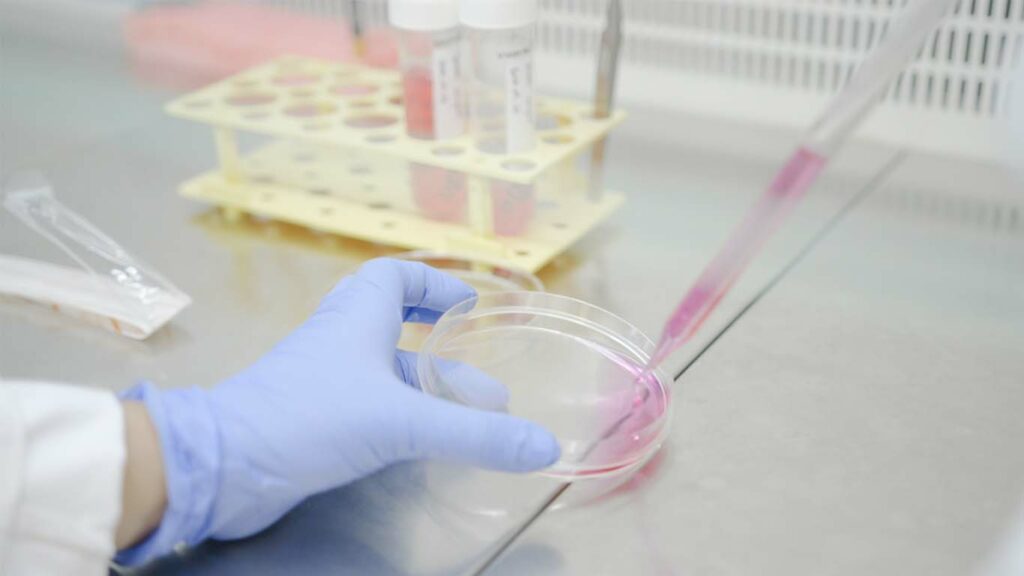Melanoma is a complex and heterogeneous disease in which the response to treatment is limited, especially in some tumor subtypes. A study led by the Biomedical Research in Melanoma group at Vall d’Hebron Institute of Research (VHIR) has identified a strategy that improves the response of melanoma cells to an existing treatment. The study, published in Nature Communications, has been carried out in collaboration with the Dermatology Department of the Vall d’Hebron University Hospital, the Breast Cancer and Melanoma group of the Vall d’Hebron Institute of Oncology (VHIO), the Bellvitge Biomedical Research Institute (IDIBELL), Universitat Rovira i Virgili (URV) and Institut d’Investigació Sanitària Pere Virgili (IISPV).
One of the most common subtypes of melanoma is caused by mutations in NRAS, a protein related to cell malignancy that is altered in 25% of cases. Its treatment is currently limited due to the difficulty involved in developing targeted therapies against NRAS. “In this work we contribute to understand the role of NRAS in melanoma, which is essential to find therapeutic strategies against this subtype of tumor“, explains Dr. Juan Ángel Recio, head of the Biomedical Research in Melanoma group at VHIR.
In the study, the researchers examined the characteristics of the metabolism of melanoma cells. Tumors require a high consumption of glucose to obtain energy, but, above all, to produce components such as proteins or nucleic acids and generate a new cell. In the case of NRAS-mutated melanomas, these are especially dependent on glucose compared to other subtypes, as they have difficulty in using other alternative energy sources to compensate for the absence of glucose.
The results of the work show that, when glucose is removed from the environment, cells of this melanoma subtype activate survival signaling pathways different from those activated under normal conditions. One of the proteins activated in this situation is BRAF, which allows the cells to function normally despite adverse conditions. It was also found that, under these conditions, the drug sorafenib, which has already been used for years for other indications, is able to inhibit this mechanism and thus prevent cell survival. “By eliminating glucose, we are able to make melanoma cells sensitive to treatment with sorafenib and they die very quickly. This way we can use existing drugs, which facilitates and accelerates the process to clinics, since, in the case of sorafenib, it is already approved for use in humans”, comment the researchers.
Finally, the research also analyzed the effect of this strategy in animal models in which tumor cells from patients were implanted. In this case, to simulate the lack of glucose in tumor cells, they used a compound capable of mimicking glucose but which cannot be metabolized in the same way, blocking its use. Since tumor cells need more energy than healthy cells, they have a greater tendency to uptake glucose and therefore also trap more of this compound that mimics the lack of glucose. It was confirmed that by administering sorafenib together with this substance, the tumor volume of the mice is reduced and in some cases may even disappear.
The Bellvitge Biomedical Research Institute (IDIBELL) is a biomedical research center created in 2004. It is participated by the Bellvitge University Hospital and the Viladecans Hospital of the Catalan Institute of Health, the Catalan Institute of Oncology, the University of Barcelona and the City Council of L’Hospitalet de Llobregat.
IDIBELL is a member of the Campus of International Excellence of the University of Barcelona HUBc and is part of the CERCA institution of the Generalitat de Catalunya. In 2009 it became one of the first five Spanish research centers accredited as a health research institute by the Carlos III Health Institute. In addition, it is part of the “HR Excellence in Research” program of the European Union and is a member of EATRIS and REGIC. Since 2018, IDIBELL has been an Accredited Center of the AECC Scientific Foundation (FCAECC).

